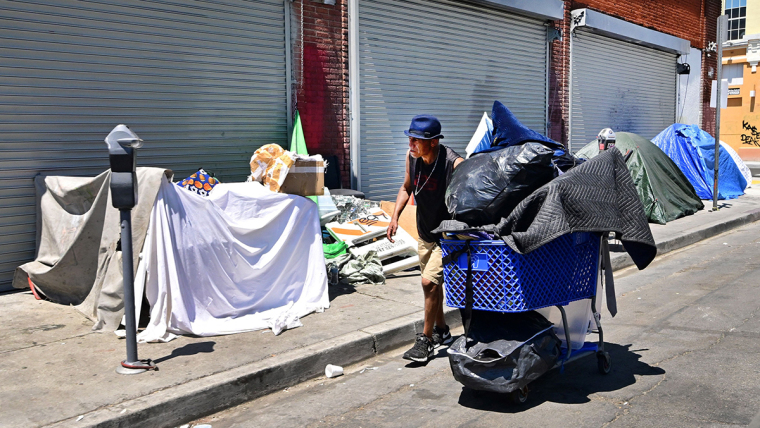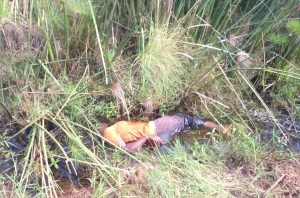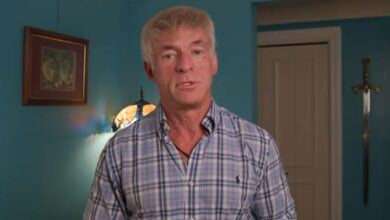California law expedites process to build housing on church lands


California Gov. Gavin Newsom has signed a law designed to expedite the approval process for religious institutions and colleges seeking to build low-income housing on their properties as the state continues to experience a homelessness crisis.
On Wednesday, Newsom’s office announced the signing of 56 laws designed to “streamline housing and expand tenant protections in California.”
“It’s simple math — California needs to build more housing and ensure the housing we have is affordable,” Newsom, a Democrat, said in a statement.
“In partnership with the Legislature, we have advanced billions of dollars to that end,” he added. “These 56 bills build on that work, supporting tenants and ensuring cities are held accountable to plan for and permit their fair share of housing.”
One bill signed by Newsom is S.B. 4, also known as Yes in God’s Backyard and the Affordable Housing on Faith Lands Act of 2023. Sponsored by Democratic State Sen. Scott Wiener, the measure was approved by the Democratic-controlled California Senate in a 33-2 vote and by the Democratic-controlled California Assembly in a 73-1 vote. While the measure achieved strong bipartisan support, all of the votes against it came from Republicans.
“This bill would require that a housing development be a use by right upon the request of an applicant who submits an application for streamlined approval, on any land owned by an independent institution of higher education or religious institution on or before January 1, 2024, if the development satisfies specified criteria, including that the development is not adjoined to any site where more than one-third of the square footage on the site is dedicated to industrial use,” the legislation states.
One of the requirements outlined in the bill mandate that “100% of the units, exclusive of manager units, in a housing development project eligible for approval as a use by right under these provisions be affordable to lower income households, except that 20% of the units may be for moderate-income households, and 5% of the units may be for staff of the independent institution of higher education or the religious institution that owns the land.” The bill’s provisions will sunset on Jan. 1, 2036.
“California desperately needs to ramp up housing production, and the Governor’s action today helps put us on a path to achieve that goal,” Wiener asserted in a statement. “The era of saying no to housing is coming to an end. We’ve been planting seeds for years to get us to a brighter housing future, and today we’re continuing strongly down that path.”
Abram Diaz, the policy director for the Non-Profit Housing Association of Northern California, praised S.B. 4 as “a powerful new tool that harnesses the mission of our religious institutions and colleges to address the homebuilding needs of our state.”
Diaz said the law “unlocks” over 171,000 acres of land strictly for affordable housing production, “creating a game changing opportunity to house more veterans, seniors, people with disabilities, and other community members who need support.”
“This is California policymaking at its best, by designing solutions that empower our community leaders to direct their resources to solve our most pressing problems,” he said. “We are proud to partner with Senator Wiener and our coalition of over 300 supporters on this issue and applaud Governor Newsom for signing this bill into law.”
Supporters of S.B. 4 include the California Conference of Carpenters, Inner City Law Center, Jewish Public Affairs Committee, Non-Profit Housing Association of California and Southern California Association of Non-Profit Housing.
The approval of S.B. 4 and nearly five dozen related bills comes as California continues to experience a homelessness crisis.
A report compiled by the U.S. Department of Housing and Urban Development last year found that 171,521 homeless people lived in California, accounting for nearly 30% of the national total.
Additionally, California has the highest percentage of homeless people who are unsheltered, meaning their “primary nighttime location is a public or private place not designated for, or ordinarily used as, a regular sleeping accommodation for people” such as the streets, vehicles or parks. California is home to 115,491 unsheltered people, who comprise 67.3% of the state’s homeless population.
Ryan Foley is a reporter for The Christian Post. He can be reached at: [email protected]
Free Religious Freedom Updates
Join thousands of others to get the FREEDOM POST newsletter for free, sent twice a week from The Christian Post.




